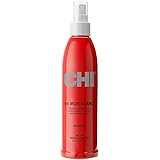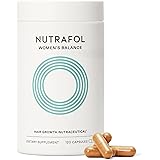Understanding Acne: Causes and Types
Acne is a common skin condition characterized by the presence of comedones, papules, pustules, and in more severe cases, cysts. Biological processes such as hormone fluctuations, increased sebum production, and the accumulation of dead skin cells play essential roles in the development of acne. The condition often emerges during adolescence, when hormonal changes trigger these processes, but it can affect individuals of all ages.
There are several distinct types of acne, each categorized based on appearance and underlying causes. The most prevalent types include:
- Pimples: These are inflamed lesions filled with pus, often appearing red at their base due to the accompanying inflammation.
- Blackheads: These are open comedones that appear dark due to oxidation of the melanin pigment in the trapped sebum and dead skin cells, but they are not usually inflamed.
- Whiteheads: Closed comedones, or whiteheads, are similar to blackheads but occur when the clogged pore remains closed, leading to a white or flesh-colored bump on the skin.
- Cystic Acne: This severe form of acne is characterized by deep, painful cysts that can cause significant scarring. It often requires more advanced treatment methods to manage effectively.
- Hormonal Acne: Common in adults, especially women, this type is correlated with hormonal fluctuations related to menstrual cycles, pregnancy, or conditions such as polycystic ovary syndrome (PCOS).
Several contributing factors to the onset of acne include hormonal changes, dietary choices, stress levels, and skincare practices. Hormones, particularly androgens, can stimulate sebaceous glands to produce excess sebum, leading to clogged pores. Diets high in sugar and dairy may also exacerbate acne for some individuals. Stress can trigger hormonal fluctuations that intensify acne breakouts, while inappropriate skincare routines can worsen or lead to new acne formations.
The Importance of a Skincare Routine
A consistent skincare routine is crucial for maintaining clear skin, particularly for individuals prone to acne. An effective routine not only addresses existing blemishes but also plays a significant role in preventing future breakouts. By incorporating a series of essential steps tailored to individual skin types, one can achieve healthier, more radiant skin. Key components of a successful skincare regimen include cleansing, exfoliating, moisturizing, and the use of treatment products.
Cleansing is the foundation of any skincare routine. It helps remove dirt, oil, and impurities that can clog pores and contribute to acne formation. Using a gentle cleanser twice daily can aid in maintaining skin balance without irritating delicate areas. Following cleansing, exfoliating periodically aids in sloughing off dead skin cells, which can accumulate and lead to clogged pores. Both chemical and physical exfoliants can be utilized, but one must choose based on their skin’s sensitivity and needs.
Moisturizing is often overlooked, especially by those with oily and acne-prone skin. However, even oily skin requires hydration. Using a non-comedogenic moisturizer can help retain moisture while preventing the skin from overproducing oil, which is a common contributor to breakouts. By ensuring that the skin remains hydrated, individuals can enhance their overall skin texture and resilience.
Incorporating specific treatment products, such as those containing salicylic acid or benzoyl peroxide, can target existing acne while averting new outbreaks. These ingredients work effectively against acne by unclogging pores, reducing inflammation, and promoting healthy cell turnover. Tailoring a skincare routine that encompasses these key elements is essential for individuals seeking to not only manage acne but also enjoy clearer skin in the long term.
Top Miracle Ingredients for Acne Treatments
Acne treatments often rely on specific active ingredients known for their effectiveness in managing and reducing blemishes. Among the most commonly used are salicylic acid, benzoyl peroxide, retinoids, tea tree oil, and niacinamide, each possessing unique properties that target the underlying causes of acne.
Salicylic acid is a beta hydroxy acid (BHA) that penetrates the pores, effectively dissolving excess oil and dead skin cells, thus preventing blockages that lead to acne formation. Additionally, it has anti-inflammatory properties that can help reduce redness and swelling associated with breakouts. Although generally well-tolerated, some users may experience irritation or dryness, especially with prolonged use.
Benzoyl peroxide functions by killing the bacteria responsible for acne, specifically Propionibacterium acnes. It also aids in unclogging pores, helping to minimize the appearance of existing pimples. While it is effective, benzoyl peroxide can sometimes lead to dryness or peeling of the skin, necessitating the use of moisturizers to maintain hydration.
Retinoids, derivatives of vitamin A, promote cell turnover and prevent the formation of clogged pores. These compounds are particularly effective for both inflammatory and non-inflammatory acne types, making them a versatile option in treatment regimens. However, retinoids can also cause initial skin irritation, which typically subsides as the skin acclimates to the treatment.
Tea tree oil is a natural alternative that possesses antimicrobial properties, helping to combat acne-causing bacteria while soothing inflammation. Users appreciate its plant-based origin, but it should be noted that pure tea tree oil may need to be diluted to avoid potential skin irritation.
Lastly, niacinamide is known for its anti-inflammatory effects and ability to regulate oil production. It also helps to fade acne scars and improve the overall texture of the skin. This ingredient is generally gentle; however, individuals with very sensitive skin may still experience reactions.
Incorporating these miracle ingredients into a skincare routine can significantly enhance the efficacy of acne treatments and drive the pursuit of clearer skin. Evaluating potential side effects and individual skin tolerance is essential to ensure a successful and comfortable experience.
Over-the-Counter vs. Prescription Treatments
Acne treatment options can generally be divided into two main categories: over-the-counter (OTC) treatments and prescription treatments. OTC products are widely available and can be purchased at pharmacies or online, often without the need for a healthcare provider’s consultation. Common ingredients found in OTC acne treatments include benzoyl peroxide, salicylic acid, and alpha hydroxy acids, which effectively target mild to moderate acne. One significant advantage of OTC treatments is their accessibility and cost-effectiveness; they allow individuals to start a skincare regimen without the need for a prescription.
However, these products may not always be sufficient for everyone. While many individuals find relief from mild breakouts through consistent use of OTC products, those with persistent or severe acne might experience limited benefits. In such cases, seeking professional advice becomes essential. A healthcare provider can evaluate acne severity and skin type, making personalized recommendations for treatment.
On the other hand, prescription treatments typically include stronger formulations such as topical retinoids, oral antibiotics, or hormonal therapies. These products are intended for individuals experiencing moderate to severe acne that does not respond adequately to OTC alternatives. Prescribed treatments can lead to significant improvements in skin clarity and often target underlying causes of acne, such as bacterial overgrowth or excessive oil production.
While prescription treatments are generally effective, they may carry potential side effects and require regular follow-up with a healthcare provider. Additionally, it is vital to consider factors such as individual skin sensitivity and possible interactions with other medications. Ultimately, the decision to choose between OTC and prescription acne treatments should be informed by the severity of the condition, personal experience with previous treatments, and a discussion with a qualified healthcare professional.
Natural Remedies: Do They Work?
Acne is a common skin condition that affects individuals worldwide, leading many to seek out natural remedies for clearer skin. Among the popular options, honey, apple cider vinegar, aloe vera, and green tea have garnered attention for their potential effectiveness against acne.
Honey, known for its antibacterial properties, is frequently cited as a natural treatment for acne. Research suggests that its viscous nature can help retain moisture in the skin while drawing out impurities, making it a soothing option for topical application. Anecdotal evidence from various users supports the idea that honey is a gentle alternative that may reduce inflammation and promote healing.
Apple cider vinegar is another widely-trusted remedy attributed to its natural acidic characteristics. Some studies indicate that its application can help restore the skin’s natural pH and reduce the growth of acne-causing bacteria. However, it is essential to dilute apple cider vinegar before use, as undiluted solutions may cause skin irritation. Personal reviews have shown some promise, although results can be inconsistent based on individual skin types.
Aloe vera, known for its soothing and anti-inflammatory properties, has been used traditionally to treat skin issues. Scientific studies reveal that aloe vera gel can help reduce redness and irritation associated with acne, making it an appealing choice for sensitive skin. Users often report improved skin texture and reduced lesions when using aloe vera consistently.
Lastly, green tea, rich in antioxidants, has shown potential in acne management. Research has revealed that topical applications can help decrease sebum production, leading to clearer skin. The incorporation of green tea extracts in skincare products has been positively received, with many individuals claiming visible improvements in their complexion.
While these natural remedies have shown effectiveness in various studies and anecdotal reports, results can vary significantly among individuals. It is advisable to approach natural treatments mindfully and consider patch-testing to prevent adverse reactions.
The Role of Diet and Lifestyle in Acne Management
Acne is often regarded as a multifaceted skin condition influenced not only by genetics and hormonal changes but also significantly by diet and lifestyle choices. Research suggests that certain foods can exacerbate acne symptoms by triggering inflammatory responses or altering hormone levels. High-glycemic index foods, such as white bread and sugary snacks, have been linked to increased insulin levels, which may lead to the overproduction of sebum and ultimately result in clogged pores. Additionally, dairy products have been implicated in acne development, particularly in individuals who have a sensitivity to lactose or specific proteins found in milk. It is essential to evaluate one’s dietary habits to identify potential triggers and strive toward a more balanced diet that prioritizes whole foods, fruits, vegetables, and healthy fats.
Moreover, lifestyle factors like hydration, sleep quality, and stress management play crucial roles in maintaining skin health. Proper hydration is vital, as water helps to flush out toxins and keeps the skin supple. Dehydration can lead to a buildup of dead skin cells, contributing to clogged pores and breakouts. Sleep is another essential component; inadequate rest can disrupt hormonal balance and increase cortisol levels, which may lead to elevated oil production. Establishing a consistent sleep schedule and developing a calming nighttime routine can improve skin appearance over time.
Furthermore, stress management techniques, such as mindfulness meditation, yoga, or regular physical activity, can alleviate stress levels, thus improving overall skin health. High-stress environments can exacerbate acne by triggering hormonal fluctuations that stimulate sebaceous glands. Therefore, adopting a holistic approach to acne management encompassing diet and lifestyle adjustments can significantly enhance the skin’s condition. In conclusion, understanding the intricate links between what we consume and our daily habits is pivotal in achieving and maintaining clear skin.
Professional Treatments: What Are Your Options?
For individuals seeking to address stubborn acne effectively, a variety of professional treatments are available, each offering unique benefits and considerations. Chemical peels are a popular option, utilizing specific acids to exfoliate the skin’s surface. By removing dead skin cells and unclogging pores, this procedure can lead to improved skin texture and reduced breakouts. However, side effects may include redness and peeling, necessitating a recovery period that can vary based on the peel’s strength.
Another treatment method gaining traction is laser therapy, which employs targeted light energy to reduce inflammation and kill acne-causing bacteria. Different types of lasers are available, such as pulsed dye lasers and fractional lasers, with the choice dependent on the severity and nature of the individual’s acne. While laser therapy can yield significant improvements in skin clarity, multiple sessions may be required, and some patients may experience temporary discomfort or swelling post-treatment.
Cortisone injections represent a swift intervention for inflamed acne, providing immediate relief by reducing swelling and redness. This treatment is particularly effective for cystic acne, as it can minimize lesions within a short span of time. Nevertheless, overuse can lead to skin atrophy, and results may vary based on individual skin response.
As with any medical procedure, it is critical for individuals to have thorough consultations with qualified dermatologists to determine the most suitable treatment plan tailored to their specific skin type and acne severity. Discussing potential risks, benefits, and realistic expectations can facilitate informed decisions, ultimately aiding in achieving clearer skin.
Success Stories: Real-Life Transformations
Acne can be a relentless challenge for many individuals, significantly impacting self-esteem and quality of life. However, numerous success stories illustrate that clear skin is achievable with the right acne treatments. These personal narratives shed light on diverse journeys toward achieving a blemish-free complexion and resonate with those currently grappling with similar struggles.
Take the story of Sarah, a 24-year-old who battled severe cystic acne throughout her teenage years. Frustrated with over-the-counter solutions that yielded minimal results, she sought professional help. Under the guidance of a dermatologist, Sarah embarked on a treatment regimen that combined topical retinoids and oral medications. After a few months, her skin began to show remarkable improvement, and she could finally leave the house without heavy concealer. Sarah’s story highlights the importance of professional guidance and finding the right treatment—an essential step in achieving clear skin.
Then there is Jason, who, after a decade-long struggle with acne, turned to lifestyle changes as part of his acne treatment. He adopted a cleaner diet, incorporating fruits and vegetables while reducing his intake of dairy products. Coupled with a consistent skincare routine that included gentle cleansers and exfoliants, Jason experienced a significant reduction in breakouts within weeks. His transformation serves as a testament to the power of holistic approaches in managing acne and illustrates that different paths can lead to success.
Moreover, Emily’s experience showcases the positive influence of community support. After seeking advice on online forums, she discovered a combination of natural remedies and over-the-counter treatments that drastically improved her skin condition. Emily’s proactive research and community engagement not only helped in her quest for clear skin but also fostered connections with others coping with acne. These success stories are not only inspiring but also serve as valuable reminders that persistence can lead to beautiful transformations in the fight against acne.
Final Thoughts: Building Confidence with Clear Skin
Acne, often regarded merely as a skin condition, carries with it significant psychological implications that can profoundly impact self-esteem and overall mental health. The visibility of blemishes can lead to social withdrawal, anxiety, and low confidence levels, making it crucial to understand the broader effects of this condition. For many individuals, achieving clear skin is not just about aesthetics; it represents an emotional and psychological transformation.
As one navigates the complex world of acne treatments, patience and persistence become essential virtues. The journey towards clear skin can be filled with ups and downs, as various treatments may take time to show significant results. It is vital to embrace this journey as part of one’s broader path to improved self-esteem and mental well-being. Each step taken towards better skin health should be seen as an investment in oneself, reinforcing the notion that physical appearances are intertwined with internal self-worth.
Moreover, individuals must prioritize their mental well-being alongside any acne treatment regimen. Recognizing that clear skin can positively influence one’s self-image, it becomes equally important to practice self-compassion and engage in positive affirmations throughout the treatment process. It is essential to surround oneself with supportive social circles that appreciate individuality beyond physical appearances. This holistic approach not only amplifies the benefits of acne treatments but also cultivates an environment of self-love and acceptance.
In conclusion, the journey to clear skin is not merely about addressing the physical aspects of acne; it is a powerful opportunity for personal growth and empowerment. By remaining patient and focused on the mental health aspect, individuals can transform their lives while building confidence. Embracing this journey allows for a more profound connection between clearer skin and enhanced self-esteem, paving the way for a more fulfilling life.






